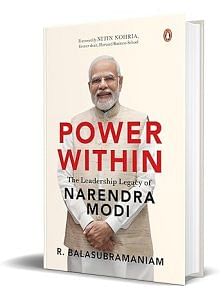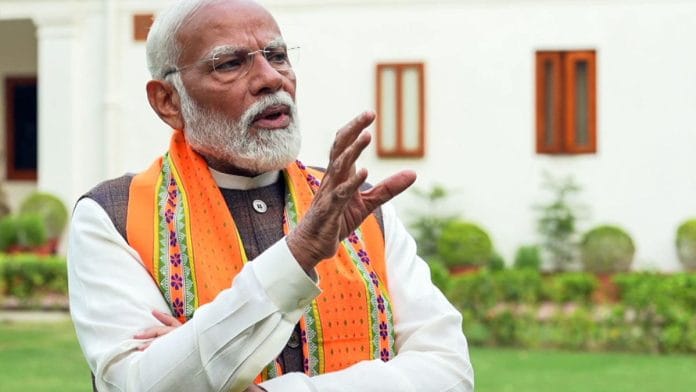Ultimately, Jammu and Kashmir was brought to lasting peace through this bold move. Terror incidents have shown a 70 per cent decline compared to three decades ago, and other incidents like stone pelting and strikes have been brought to zero.
Similarly, there has been a remarkable decrease in the deaths of civilians and security personnel. While there had been multiple attempts by the Opposition to rescind this step of abrogation, the Supreme Court of India put a final closure on the issue, praising the Government’s intention and actions, after four years of careful deliberation.
After the final closure, the PM penned his thoughts on the issue:
. . . due to centuries of colonization, most notably economic and mental subjugation, we became a confused society of sorts. Rather than taking a clear position on basic things, we allowed duality, leading to confusion. Sadly, Jammu and Kashmir (J&K) became a victim of such a mindset . . . It was always my firm belief that what had happened in J&K was a great betrayal—of our nation and of the people living there.
It was also my strong desire to do whatever I can to remove this blot, this injustice done to the people. I have always wanted to work to alleviate the suffering of the people of Jammu and Kashmir . . . while serving the people of J&K, we gave primacy to three pillars—understanding citizens’ concerns, building trust through supportive actions, and prioritizing development, development, and more development . . .
In its verdict on December 11, the Supreme Court has strengthened the spirit of “Ek Bharat, Shreshtha Bharat”. It has reminded us that what defines us are bonds of unity and a shared commitment to good governance. Today, the dreams of the people are no longer prisoners of the past but about possibilities for the future. After all, development, democracy, and dignity have replaced disillusionment, disappointment and despondency.
Leaders must find a balance between adapting to new circumstances and maintaining their core values and authenticity. These actions taken by the PM are a lesson for leaders on how to navigate such a web of tensions. PM Modi has a holistic approach to learning that has made it possible for him to adapt and thrive in complex and rapidly changing environments.
Having a systems approach to his thinking, Modi is able to form a deep understanding of the interrelationships and interdependencies among various elements within an ecosystem. This approach allows him to look beyond isolated events and address the underlying structures that influence behaviours and outcomes.
Apart from mapping the various stakeholders operating within a system, it also gives him an appreciation of the perspectives and the unspoken motives that each of these stakeholders bring to the table.
Mere knowledge of how systems operate may not give a person all the information they need on how best to act in the context in which they are placed. They would also need the ability, discipline and desire to engage in personal mastery.
An effective leader has to be a lifelong learner who not only absorbs what they learn but who is also reflective enough to appropriately use what they learn, when the situation demands it. Modi’s constant striving to achieve his full potential by developing his skills, clarifying his personal vision and aligning his actions with his values is what stands out the most.
Dharmendra Pradhan, a minister in his Cabinet, puts it succinctly, ‘ . . . a person who speaks less but learns a lot, allows for deliberations and debate, a person with conviction in the system’s approach with an eye for detail, and possesses the unusual blend of being a rishi and a ruler (rajarishi) . . . ’
Peter Senge, American systems scientist who is a senior lecturer at the MIT Sloan School of Management, writes about this ability in his book, The Fifth Discipline: The Art and Practice
of the Learning Organization. He says that ‘mental models’ are the assumptions, beliefs and perceptions that individuals and organizations hold.
Senge highlights the need to challenge and revise these mental models to foster more effective decision-making and problem-solving. Senge emphasizes the importance of involving all members in creating and committing to a shared vision, which helps align efforts and inspire meaningful action. Very few leaders around the world can seamlessly synthesize the elements of community mobilization, strategic visioning, selfless action, clarity of thought, taking ownership for the consequences of decisions and providing unstinted support to a team.
By applying systems thinking, cultivating personal mastery, promoting shared vision, encouraging team learning and challenging mental models, Prime Minister Modi has pushed the limits of the governmental and societal ecosystems.
In examining Narendra Modi’s leadership through the lens of adaptive leadership, one finds a compelling illustration of a leader who is unafraid to challenge conventions and drive transformation. Much like Ronald Heifetz’s framework of exercising adaptive leadership, Modi has demonstrated a keen ability to understand diverse perspectives and navigate through complex sociopolitical landscapes.
He mobilized a coalition with a strong domestic and international backing, raised the heat on a dormant issue to prompt action, and communicated a vision that ripened the issue for resolution in the national consciousness. His capacity to ‘get on the balcony’—to rise above immediate crises and gain a broader view—has been instrumental in steering the nation through significant reforms and challenges.
Modi’s leadership style is a testament to the power of adaptability, emphasizing the importance of visionary thinking, and of continuous learning and course correction. In a rapidly changing world, leaders who embrace adaptability and harness the collective intelligence of their teams, communities or nations, are those that leave a lasting impact
on their societies.
 This excerpt from ‘Power Within: The Leadership Legacy of Narendra Modi’ by R Balasubramaniam has been published with permission from Penguin Random House.
This excerpt from ‘Power Within: The Leadership Legacy of Narendra Modi’ by R Balasubramaniam has been published with permission from Penguin Random House.






